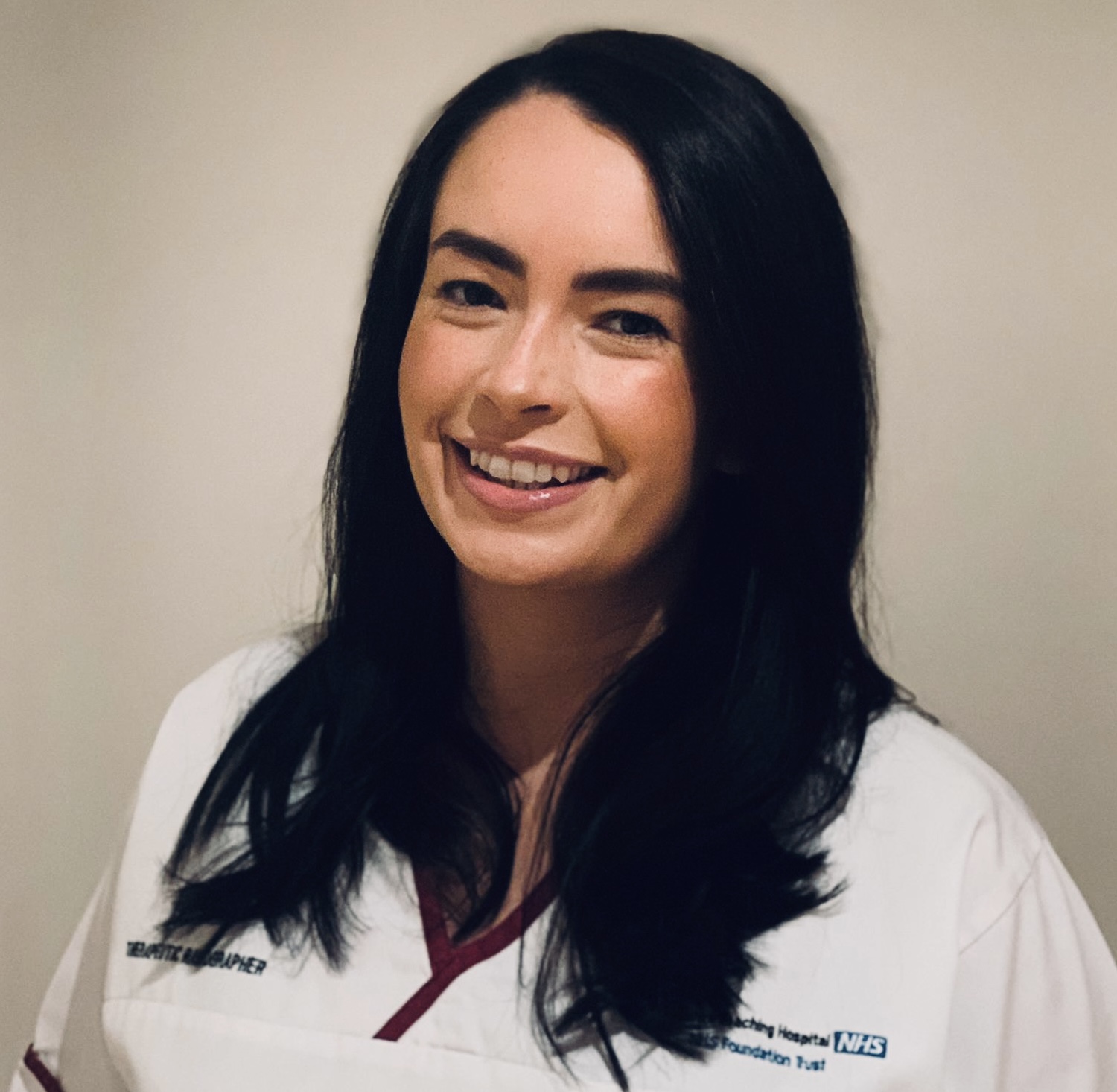 As therapeutic radiographers, our patients are at the centre of our work. The reason we do our job is purely to help people. Whether it be to cure or to alleviate pain, or to listen, educate and prevent.
As therapeutic radiographers, our patients are at the centre of our work. The reason we do our job is purely to help people. Whether it be to cure or to alleviate pain, or to listen, educate and prevent.
As topics surrounding cancer, its causes and treatment develop, we are constantly learning and as healthcare professionals we are committed to continuing professional development to make us the best we can be for our patients.
From clinical experience, speaking to patients and colleagues, to everyday life in discussion with friends and family, I have discovered that knowledge surrounding Human Papillomavirus (HPV) and its links to various cancers is not well understood. Harmful strains of HPV are responsible for the majority of cervical, oral, anal, vaginal, vulval and penile cancers, and some studies have revealed a link to prostate cancer.
Through my clinical practice, one subset of patients I began to see most affected were in the head and neck group. Patients were often questioning specialist members of the head and neck team about their HPV diagnosis and because of the stigma surrounding HPV being transmitted through sexual contact, their questions were difficult to answer - especially with partners and family members present.
HPV accounts for approximately 70% of oropharyngeal cancers and rates are rising. Predominantly, the virus is transmitted through sexual contact with the number of sexual partners increasing the risk. However, as the virus can lay dormant for many years before developing into cancer, it is impossible to trace where it developed.
Contracting HPV is not limited to sexual orientation or exclusive to the number of sexual partners an individual may have had. In fact, it is possible for somebody to contract HPV and have had only one sexual partner in their whole life.
Clinical experience of this led me to complete a study for my BSc dissertation: ‘Are UK healthcare professionals equipped to provide information and support on Human Papillomavirus to patients diagnosed with cancer of the head and neck?’. The findings have now been published at www.Cambridge.org/core/journals/journal-of-radiotherapy-in-practice.
Health professionals across six professions involved with the care of head and neck patients responded, over five UK Cancer Alliances. The results highlighted that barriers to providing information do exist, such as time restrictions and healthcare professionals’ confidence and knowledge.
Additionally, inconsistent information availability around the topic, with limited or no resources being available in some centres while others offer information booklets to both patients and staff. The key resources that were identified were created by the Throat Cancer Foundation. Both booklets, one aimed at patients and the other providing support to health care professionals on how to discuss the topic with patients, were deemed most utilised by participants.
Additionally, the study highlighted a question regarding professional responsibility. Who was responsible for having such discussions with patients? For example, is it really the responsibility of the therapeutic radiographer to answer questions on HPV? As HPV is now identified as an aetiological factor responsible for various cancers it is pertinent that all those involved in the care of those patients should understand why they are receiving cancer treatment. Those teams should be able to answer questions or help source an answer on the topic.
Therapeutic radiographers see head and neck patients for up to seven weeks throughout treatment, building relationships, listening to any issues and generally helping the patient. The journey is emotionally and physically harrowing, so that relationship can be very valuable and allow room for questions and conversation.
Additionally, when considering head and neck patients, although HPV offers a better prognosis than negative disease, it is affecting a younger patient demographic. Therefore survivors will be living longer with the debilitating long-term side effects of their treatment. It is therefore deemed important that baseline knowledge of the topic should be understood.
As an outcome of this study, I began working with Lucy Koh, a Consultant Therapeutic Radiographer in head and neck who shares the same passion for de-stigmatisation of HPV, to begin implementing some changes. Our first project involved working with members of the head and neck multidisciplinary team at Lancashire Teaching Hospitals Trust (LTHTR) to create an education package for staff. We have also teamed up with members of the Liverpool Head and Neck Centre to implement education and awareness from the patient perspective. This education package is being rolled out imminently within our Trust, then regionally with a view to continue dissemination nationally and within higher education institutes.
Patient influence is extremely important when trying to raise awareness and make changes, especially with this topic. Lucy and I decided to reach out to the Throat Cancer Foundation, as their resources are the most utilised on this topic and I felt they should be readily available across all UK Cancer Alliances. Both Lucy and I will be working with the foundation to develop education and patient information.
The stigma attached to HPV is a global issue. Education and knowledge will rise if we can just get past the stigma and essentially save lives. The public needs to see that anybody can contract HPV and that it can be serious and lead to cancer. People need to understand why the vaccination is important and why gender-neutral vaccination should be available globally. An organisation on a mission to do this is HPV Alliance.
HPV Alliance is an American organisation founded by Lillian Kreppel and her friend, actress Marcia Cross. Both Lillian and Marcia are cancer survivors from HPV related anal cancer. Upon reading Lillian’s story, her passion to be the voice that #educatestoeradicate HPV completely inspired me.
I contacted HPV Alliance to explain the work we were doing and they asked me to join their advisory board. Together, we aim to de-stigmatise, educate and most importantly save lives.
